Building with Intention: The Power of Personal Branding in Business and Life
What I’ve Learned About Personal Branding from Investing in Women-Led Startups
💭 Why I’m Writing This
This post was inspired by the recent Empowered Daughters: Leadership and Legacy event hosted by JP Morgan Private Bank, where I had the privilege of speaking on a panel about personal and professional branding. The conversation, driven by a room full of ambitious women across generations, left me thinking more deeply about how we show up, how we evolve, and how we can use our voice to lead with intention.
Whether you're a founder, investor, or someone navigating your next chapter, personal branding is no longer just a “nice to have.” It’s a strategic tool and a reflection of how you move through the world.
The stories and reflections below are shaped by that panel conversation, and by the extraordinary women I’ve had the honor of backing in my work at True Beauty Ventures.
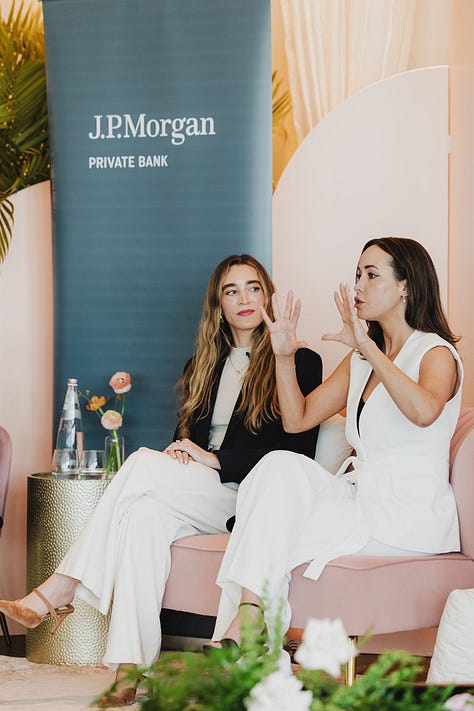
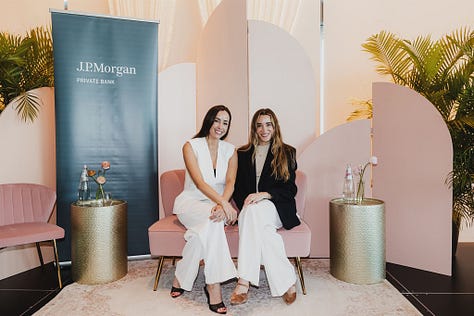
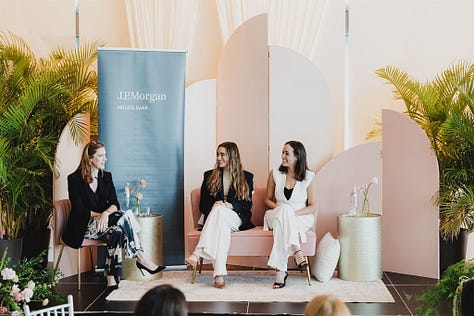
1. Why Personal Branding Matters in the Startup Ecosystem
In the world of early-stage investing, especially in consumer categories like beauty and wellness, your personal brand isn’t separate from your business. It is the business. As investors, we’re not just evaluating a product or a pitch deck. We’re evaluating the person behind it.
A strong personal brand builds credibility, attracts talent, resonates with consumers, and draws investor interest. But it’s not about being loud or having the biggest social following. It’s about clarity, consistency, and authenticity.
The founders who stand out are the ones who know who they are and build a brand that reflects that, inside and out.
Takeaway: Know your story, live your values, and lead with purpose. Whether you're pitching to VCs or building a loyal customer base, people respond to people—not just products.
2. How a Personal Brand Can Shape Career Outcomes
In venture, we say “no” far more often than we say “yes.” But sometimes, a founder’s personal brand is what turns a “maybe” into a “must.”
We had met with Cynthia Sakai, the founder of evolvetogether, several times. She didn’t come from a traditional beauty background. Her business was pivoting from COVID-era masks to personal care. At the time, the personal care side was still very nascent, and she had a very small team. Based on those factors alone, we were prepared to pass.
But what changed our minds was Cynthia herself. Her personal brand was a direct reflection of the evolvetogether ethos: elevated, mission-driven, minimal yet deeply thoughtful. Her dedication and tenacity were palpable. She was the brand.
Her authenticity, her eye for detail, and her ability to articulate the "why" made it clear: she would build something enduring. And we knew we had to back her.
Lesson: When your personal brand is a natural extension of your mission, it can inspire conviction—even before the numbers catch up.
3. Social Media: Your Greatest Tool (and Risk)
Social media is one of the most powerful tools for building personal and professional brands. But it’s also a double-edged sword.
We’ve seen how it can build virality, momentum, and community. Charlotte Palermino, co-founder of Dieux Skin, is a perfect example. You may not always agree with her POV, but her authenticity and transparency have built enormous trust and a highly engaged community for her brand. She shows up unapologetically as herself. And that resonates, especially with a discerning skincare consumer.
But social media can also amplify the smallest mistakes. For early-stage founders, where your brand is under a microscope, something minor can spiral into public drama overnight.
Advice: Be intentional. You don’t need to be everywhere. Choose the platforms where you can show up with consistency and alignment. Consumers don’t expect perfection, but they do expect coherence and honesty.
4. Brand Evolution Through Life Stages
Your personal and professional brand aren’t fixed; they evolve with you.
One of the most inspiring examples is Michele Gough Baril, founder of Iris&Romeo. Her brand was born from her own life transition of navigating aging and identity, and noticing how her skin (and expectations of beauty) shifted in her late 30s, 40s, and 50s.
She realized that traditional beauty brands weren’t speaking to this stage of life. So she created one that did. Iris&Romeo isn’t just a product. It’s a reflection of her lived experience and evolution.
Key Insight: As your life changes, your brand can (and should) evolve with it. Your growth isn’t something to hide. It’s something to build on.
5. A Personal Reflection
As a Hispanic woman in venture capital, I’m very aware that I don’t look or sound like the typical VC. This is a space that has long been male-dominated, and that still holds true today.
So how I show up is intentional.
It reflects my values:
→ To invest in predominantly female founders
→ To build a majority female investment team
→ And to better mirror the founders we support and the consumers they serve
My hope is that my personal brand helps reshape what leadership in venture capital could look like.
I want the next generation of women founders, investors, and leaders to see more people who reflect their ambition, their reality, and their voice.
Because when more women are empowered to lead, build, and evolve—we all benefit.
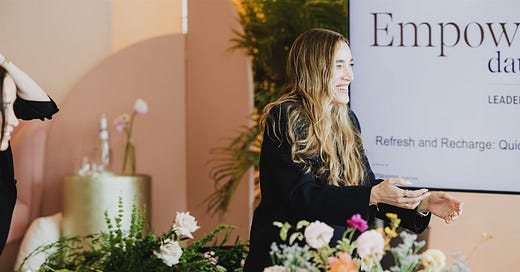



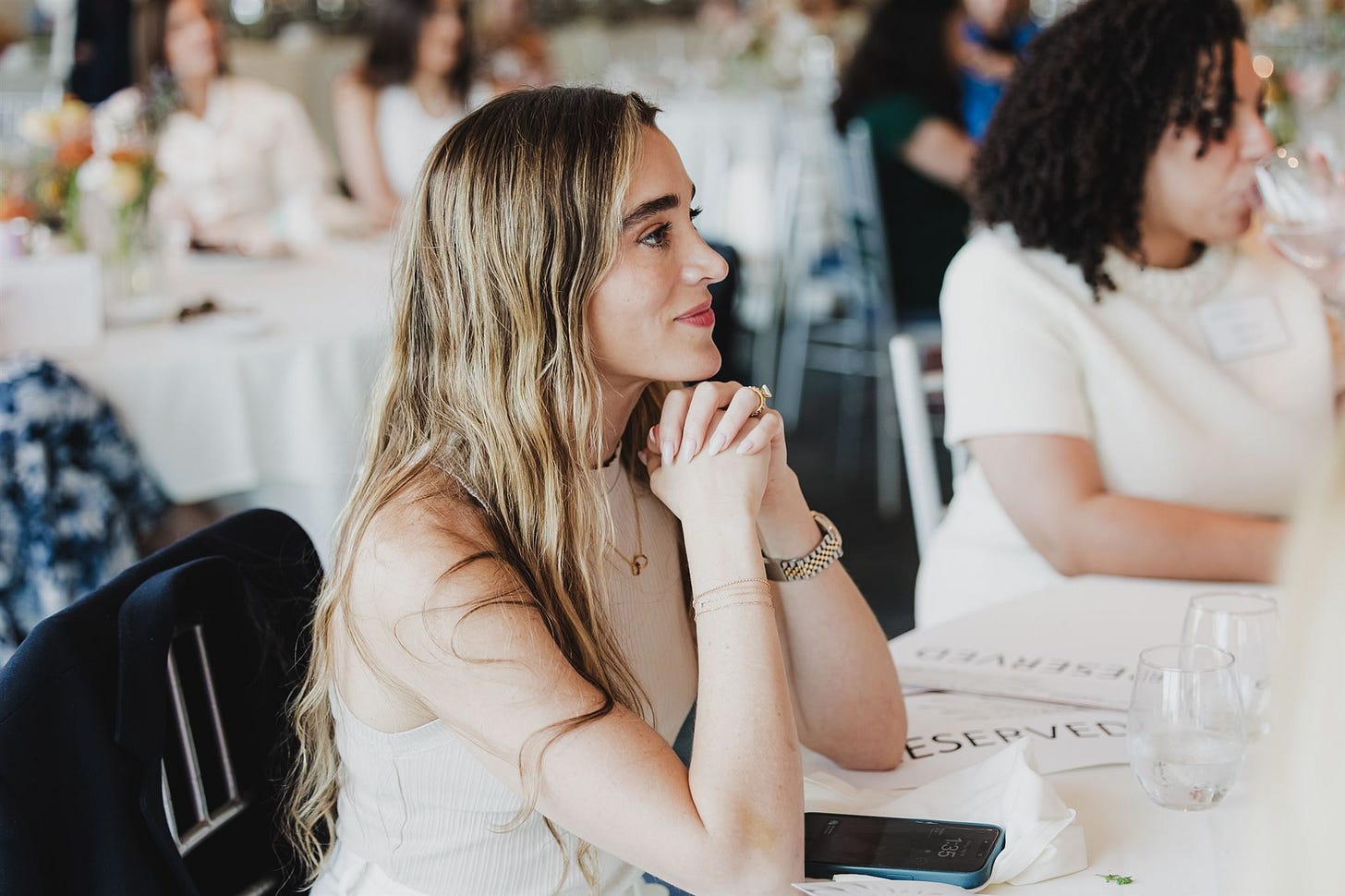
This was great!! Thanks for the reminder of how critical allocating time to developing your personal brand is.
This reminded me of another piece I read recently that pointed out the gender disparity in this particular area. Female founders are tending to "become" the brand and market themselves as well as their products far more than their male counterparts, even becoming "influencers" in their own right. It will be interesting to see if this approach either 1) gives the brands a long term substantial advantage, or 2) eventually fades as women led businesses become less of a novelty.